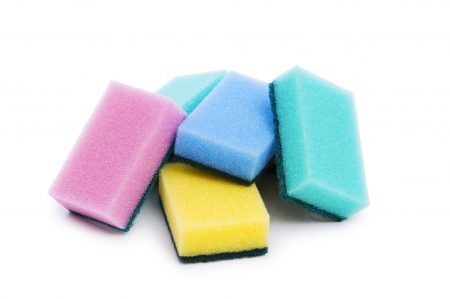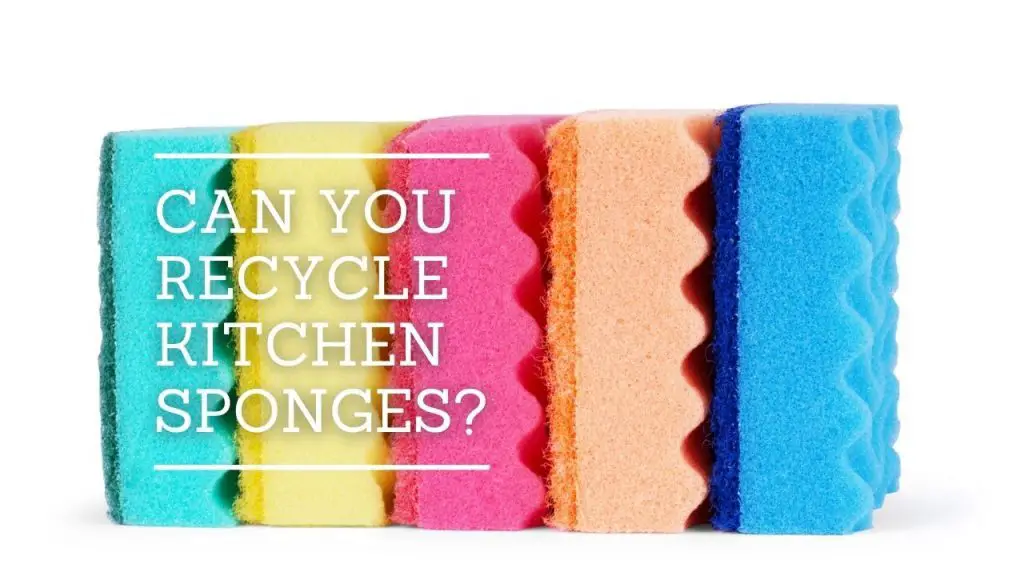When it comes to recycling and properly disposing of materials, kitchen sponges are often seen to be a moment of confusion amongst many. Most people don’t know that you cannot easily recycle kitchen sponges and contribute to more harm than good in the case of recycling.
Traditional kitchen sponges are not recyclable. Several eco-friendly options include cellulose sponges, loofa, cloth washcloths, walnut and coconut scrubbers, and unsponges.
This article will examine how you can dispose of and recycle kitchen sponges effectively. We can take significant steps towards a better and greener world for all of us by just taking sustainable steps and reducing the carbon footprint on our part.
The Problem with Using Kitchen Sponges
While kitchen sponges and rough scouring pads help remove the grease from the pans and pots around your house, they break down quickly, so you have to buy more of them and contribute to the pollution of our environment.
From their manufacturing process to their disposal, kitchen sponges are a massive contributor to environmental problems. Luckily, you can opt for eco-friendly and sustainable choices to take strides towards a future that is conscious of its green environment and contributes to pollution control.
But, you might wonder, what is so bad about these kitchen sponges?
Need new sponges? These are the top 5 bestsellers on Amazon!
Most Sponges are Made of Plastic
The iconic yellow and green sponges we see across the cleaning section of aisles and kitchen staples are usually made with plastic. This makes the product problematic as the process of production and incineration of plastic produces more than 850 million metric tons of harmful greenhouse gases, as recorded in 2019.

Their Lifespan is Low
While sponges help us clean away all the grease and all that crumby leftovers on the bottom of our pots and pans, these germ magnets are infested with bacteria that need to be replaced every week. This means that statistically, a household would use around 3 to 4 kitchen sponges every month.
This is where the problem begins. If you think about it, if a hundred thousand people started throwing out even one sponge yearly, there would be an increase in that amount in the landfills. And the number is far more significant than we’ve mentioned. This insane amount of plastic waste adds up to the pollution content in the long run.
Micro-plastic Pollution
Another type of pollution they contribute to in the long run includes Micro-plastic breakdown. This is because these sponges shed microfibers when you wipe off pots and pans, and water treatment plans can’t filter them out. All these fibers end up in the ocean in metric tons measured at the end of the year.
Can You Recycle Kitchen Sponges?
Sadly enough, there isn’t an option for recycling when it comes to kitchen sponges. Their plastic nature is why you can’t throw them away and recycle them as you usually would. So, the only option you have is to make sustainable choices, to begin with, and switch to eco-friendly alternatives to kitchen sponges.
Eco-Friendly Substitutes for Using Sponges
The problem with these kitchen sponges lies in their plastic nature. Due to this material, you cannot make choices or recycle the material for future sustainability. So, you need to opt for eco-friendly alternatives.
Beware those greenwashed terms, which include phrases like”all-natural” and”non-toxic.” Their false claims often end up doing more harm than good. Instead, try opting for these alternatives that will save the Earth and your money!
Fabric Dishcloths
Dishcloths are the ancestors of sponges, in a way. They work effectively and remove stains and greases just as well as sponges. And with a more environmentally conscious mindset, most people are returning to these clothes for cleaning.
You can also improvise in this situation and use old towels and cut-up pieces of old clothes to get the job done. This will be a bonus to introducing a better and greener mindset in your household.
Unsponges
Yes, believe it or not, that’s a term. Popularized on Etsy, these sponges are made of cotton with a nylon covering of mesh or stuffed with recycled bits of plastic. These sponges are known to have natural fiber stuffing and covering options. Either way, you can opt for a sustainably sourced and manufactured product that will last you for ages.
Cellulose Sponges
These sponges are made with wood fiber and are 100% natural and eco-friendly for our kitchen sponge problem. They include options in natural plant fibers that are readily biodegradable and compostable. However, some manufacturers have plastic amounts in them, which needs to be monitored when recycling.
Loofah Sponges
Well, yes, your showering companion can also be your kitchen companion. Try opting for loofah-style sponges for your kitchen cleaning activities. Hey, they work just as well as kitchen sponges, but you get more use.
You can even try to grow your loofah with the Luffa acutangula plant, which works incredibly well to soak up the dirt and the grease and leave your utensils all clean and shining.
Walnut and Coconut Scrubbers
Plant-based scrubbers are an excellent option for scouring pads. Made from the shells of coconut and walnuts, these scrubbers can help remove any stain effectively and soak grease up instantly. You can easily recycle and dispose of them with their 100% natural nature, making them readily biodegradable.
Conclusion
Contributing to a cleaner and greener kitchen will help us move towards a cleaner plant. We hope you have found excellent alternatives to kitchen sponges and how to reduce your plastic consumption through this article. Save the Earth by making sensible choices!






